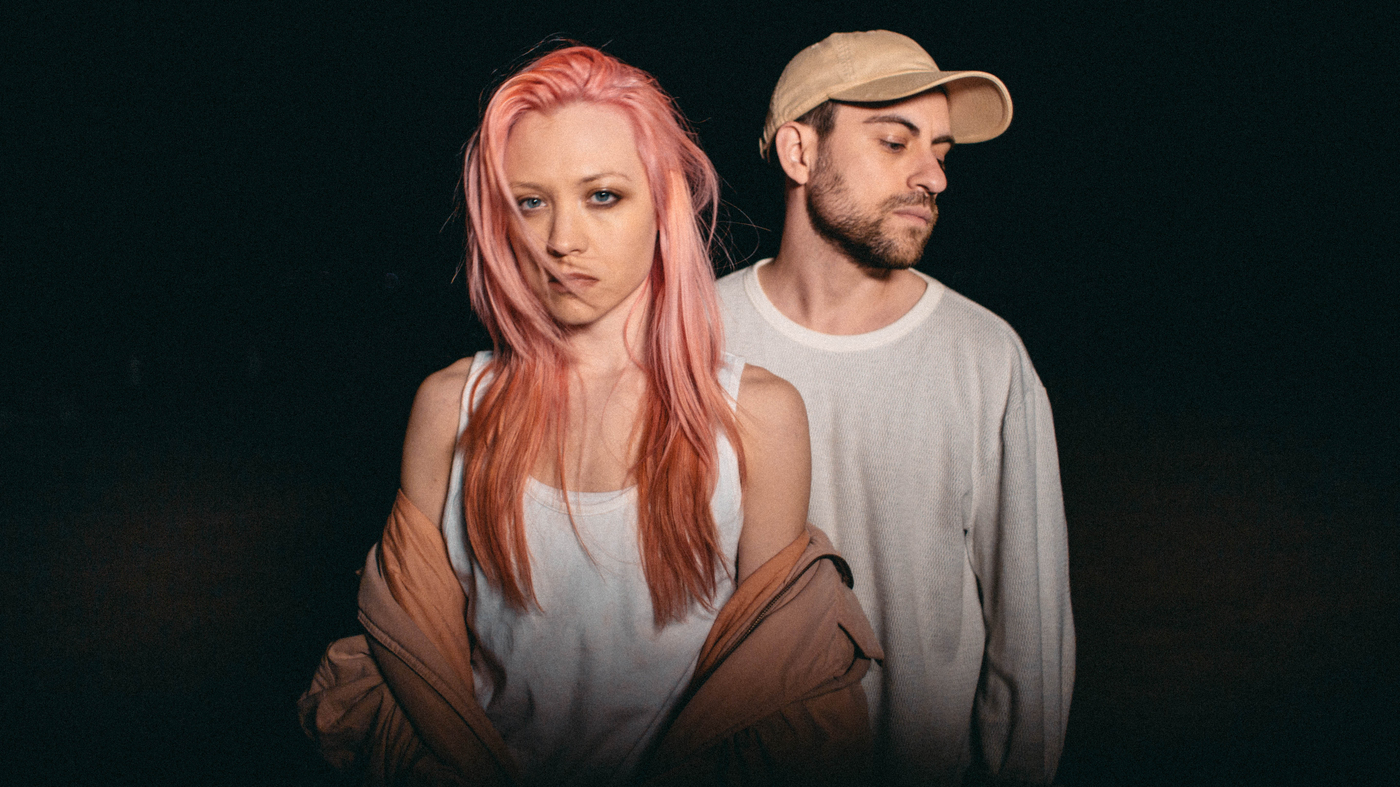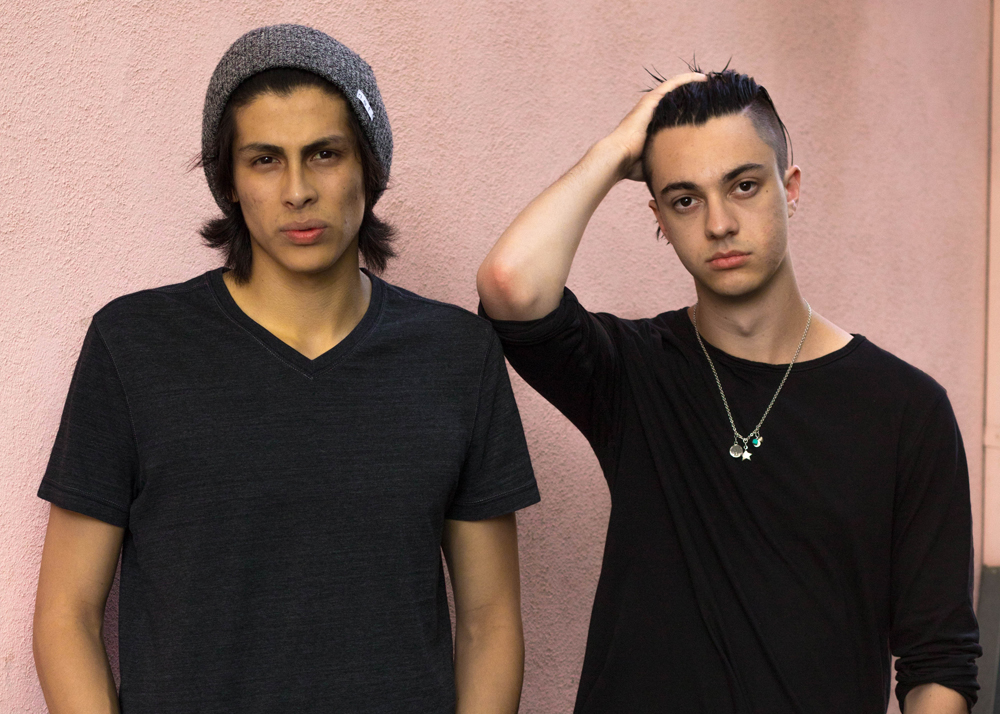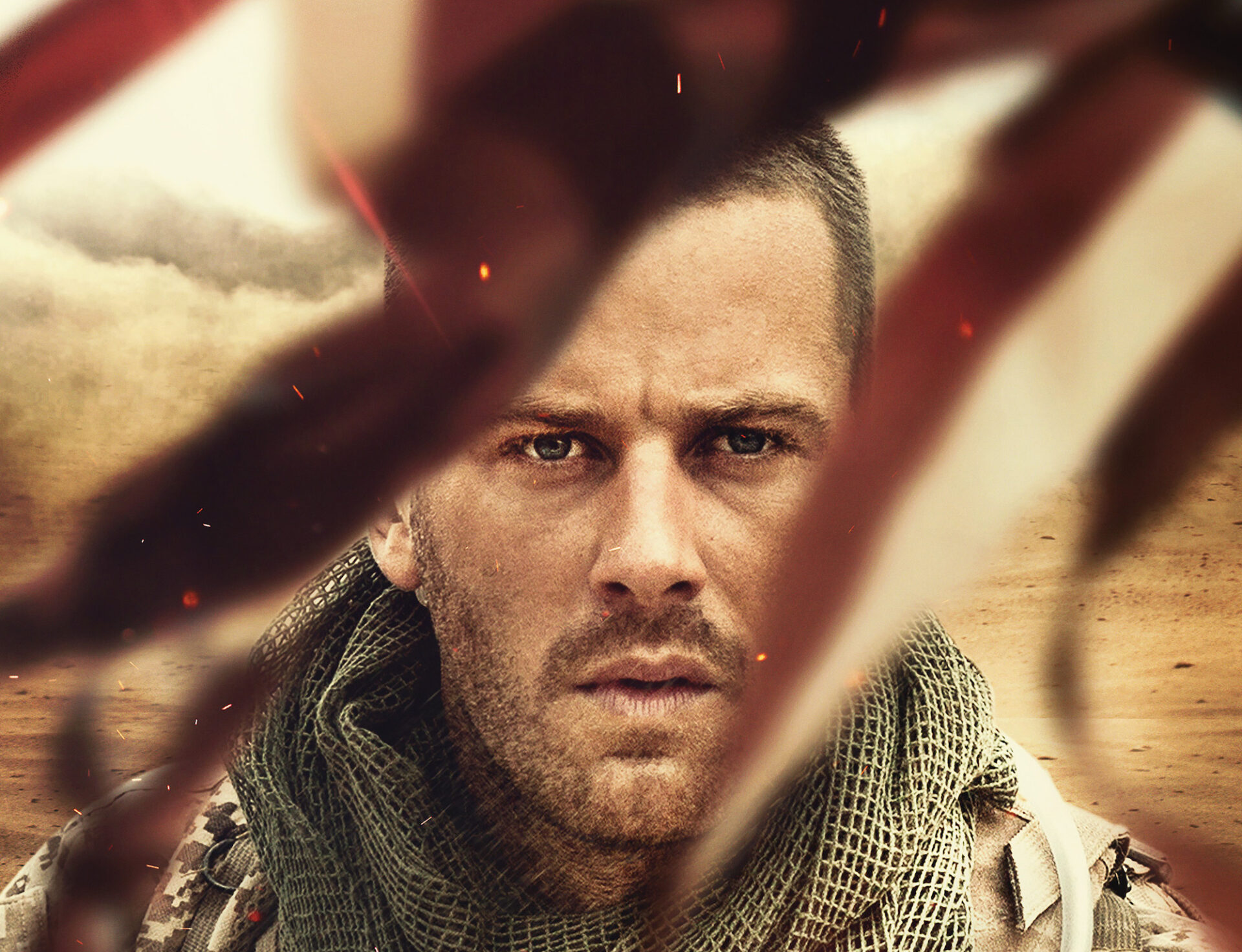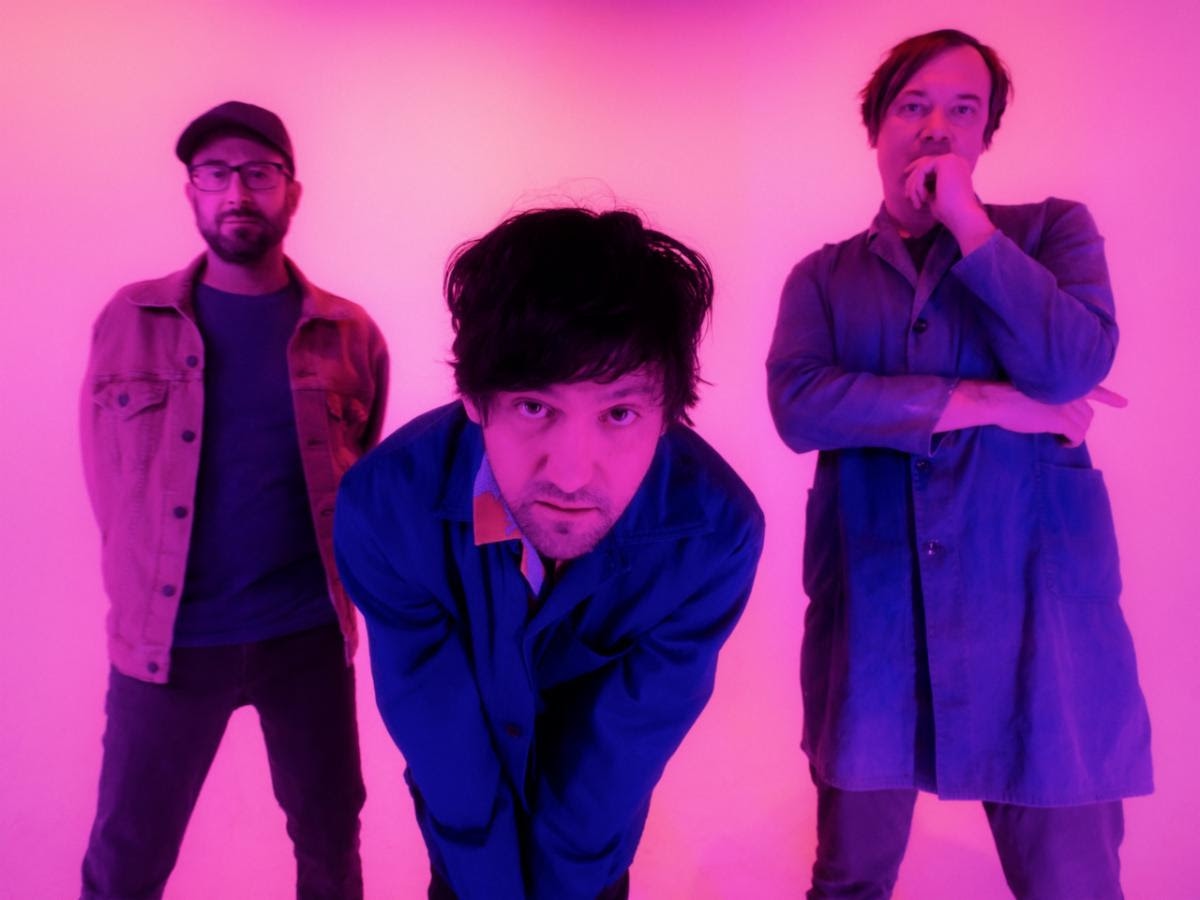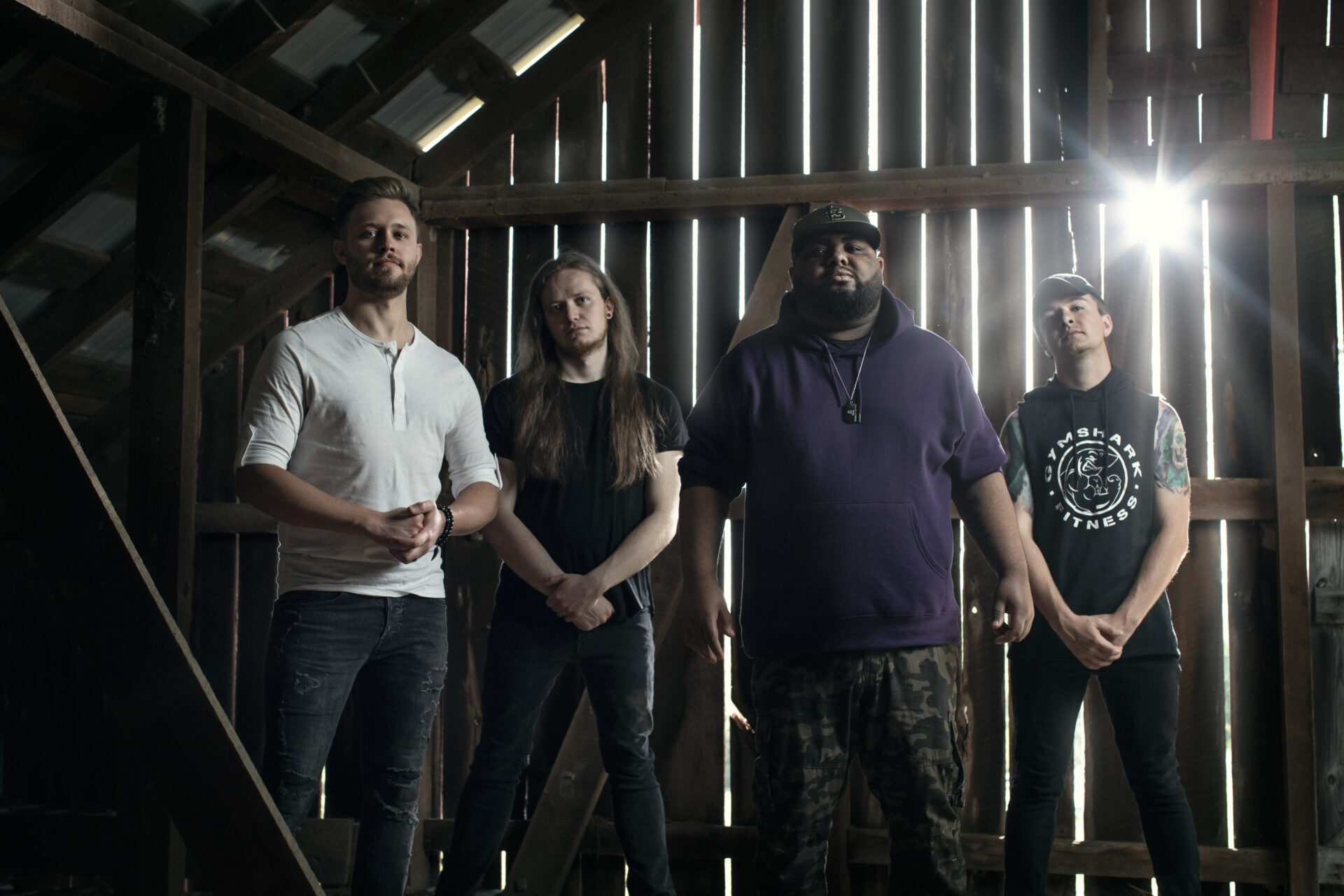“New year, new you!” This is a concept it’s nearly impossible not to be familiar with – after all, there’s something undeniably cathartic about the transition from one year to another. Purely symbolic, perhaps, ten-foot; we use the concept of time as a reason to start over. Resolutions are the order of the day – we tell ourselves we’ll make better decisions, and establish healthier habits and new traditions. Anything we think will get us closer to that idealized version of ourselves goes. But for the millions struggling with mental health, that can be a tall order – and one that isn’t nearly as simple as we’d like to pretend it is when the clock rolls over to midnight. The music community is no exception to that.
This fall at the first ever High & Low Fest in San Bernardino, I sat down with several members of that community to have a discussion about the realities of mental illness. Among those were KC Dalager and Bradley Hale of indie-pop rockers Now, Now, who released new single “Yours” earlier this year.
“Does anyone not struggle?” Bradley says quietly. It can be a notably difficult thing to own, even in the year 2017. I nod in agreement.
“Even if they’re not acknowledging the issue, I think it’s part of being a human being,” says KC. “It’s just part of existing, I feel like.” I ask about their personal connection to that struggle. “I personally go up and down with it,” says Bradley.
KC elaborates. “When I was younger I definitely struggled with it way more. The hardest part for me back then was understanding what the depression/anxiety and what was real. I started to understand that I am trying things through a filter of anxiety – like I was isolating myself because I felt like people were isolating me, you know? So it’s the thing where you don’t want something to happen so you somehow make it happen by accident. So I’ve had a lot of experience with depression in my life, and I feel like I – and this might sound dramatic – came out of the womb this way. I remember my very early thoughts were just a little bit bleak. I remember sitting in my car seat just being like… heavy sigh. ‘I hate this time of day.’ You know?”
Bradley laughs. “She’s like, three years old.” I hum a bar from “The Sound of Silence”.
KC laughs as well. “Yes, in the car seat. So I feel like just understanding how to deal with it and recognizing that it’s there… it’s definitely been a struggle for me. It’s an up-or-down thing, but I think acknowledging and understanding it is a big part of it.”
A nod from Brad. “It’s a big part of it, talking about it.”
I’m curious as to whether or not the creative nature of being a musician – or any kind of artist, for that matter – makes the subject of mental health more prevalent.
“I think it probably does come out in the songs,” KC muses. “And in how I view certain situations. I think it probably comes out more to people around me during the times when I’m writing, not even necessarily in the songs themselves. My biggest problem is that if I don’t want to feel something, I don’t feel something. I’ll just be like, I’m not going there right now. I have too many things to do. And I’ll just compartmentalize and not deal with whatever it is, but in order to be able to write I have to access every emotional part of my brain. So when we’re writing, if I’ve been doing that lately, if we’ve been dealing with a lot of stress or if something’s been going on in my personal life, it’ll come out when we’re writing. Not even necessarily in the thing, but that’s when it will really unleash if I haven’t dealt with it.”
One of the hardest parts of the mental health discussion is still the stigma attached to the subject – but the presentation of that stigma is different for everyone. I ask how it plays out personally for the duo in their own lives.
“Sometimes I see it through meeting people who think it’s very easy to be in music,” says Dalager. ‘You get to party all the time. You don’t have to worry about anything – you get to play shows as your job? I go to work 9-5!’ and it’s just like… it’s hard not to come across like you’re taking for granted what you get to do. Because obviously, we know we’re lucky. But at the same time, there’s this whole other side of it that isn’t shown all the time. Like the emotional struggle of writing music. The struggle of actually being on tour and being away from everyone all the time. Or, if you’ve got a good core group around you, then it’s way easier, but it’s just not what people think it is sometimes. And I feel like that’s when I notice it most. Or even people in your own family who are just so excited for you. If I say I’m nervous, they’re just like ‘Why though?’
Hale chimes in quietly. “I also think something that I do is I don’t want to talk about it around people, because I feel like everyone else is having so many struggles that I kind of want to be the normal one,” he says, voicing the all-too-familiar struggle of many who battle depression – the desire to not be a burden, even during a rough patch. “I feel like right now we’re very lucky to have a group of people on tour with us who just build each other up at all times. If anyone is feeling weird, it’s just this rallying thing.”
KC agrees instantaneously. “Even if they don’t say it, whether it’s just a bad day, we’re all good. And the group that we have right now is so good about being aware of each other, even if it’s not super obvious, just making sure that everyone is okay.” This piques my interest – does touring have an impact on the way bad days are handled, as opposed to being at home?
“I honestly feel like it’s easier for me on the road these days. If I’m at home, I’m alone in my basement. It’s just a darker place for me at this time in my life,” says Bradley.
“So it’s easier to be on the road with your support system?” I ask to confirm. Having a reliable support system is coping 101 when you live with depression – I would know.
“We’ve shifted the way we think about shows, or going into shows,” he responds. “It’s the highlight of our day now, whereas a few years ago maybe it was the most stressful. We’d be dreading it and now it’s kind of our release, which is a completely new thing for us. Touring right now is very energizing and positive.”
“Even just being in the van – as much as sitting does get very boring, it’s like… you know what? I’m with a group of people that I love, and everyone is good to each other,” says Dalager, smiling faintly.
I ask about perspective, something that comes with time and experience. It’s rare that people living with depression start out instantly knowing healthy ways to handle their struggles – so I ask what would’ve been helpful to hear when they were younger, knowing what life has taught them now.
“It’s fine,” Bradley says instantly. KC’s disagreement is palpable and written on her face.
“To me, someone saying ‘it’s fine’ made me feel worse. Because I’d feel like it should be fine, but I don’t feel fine,” she says.
“Right,” he agrees, brow furrowed in thought. “But I don’t mean ‘it’s fine’ but that, it’s fine to talk about, or it’s fine if you don’t feel like talking about it right now. That what’s happening is just what’s happening. I don’t know. I didn’t know how to deal with it and I didn’t know how to bring it up to anyone, so some sort of resource to be able to do that. It helps if young people [can feel good about] their family relationship, you know? I feel like for a lot of people that is a very big struggle.”
Dalager admits that she still struggles to talk about it with her family. I echo the sentiment. She adds, “Even at this point, as much as I love my family, I think I would still feel like… I shouldn’t go to you because I should have my shit together by now. I point out that something doesn’t have to be good in order to be realistic, or relatable. She relaxes, noting that she’d be more likely to go to the people she tours with on a regular basis – her safety net. I ask if it feels as though they find it easier to relate because they see the day-to-day ups and downs.
Says Brad, “The ones who find it relatable – I think that’s the divide, really. I think that’s a big source of tension with people and how they deal with this.”
Music is a place a lot of people come to for healing; not least of which the people who create the music, but if the past few years have taught us anything it’s that we’ve still got a way to go before that space is truly a safe one. I ask for their perspective on how we can specifically begin to address that.
Brad pauses. “I feel like… we did that To Write Love on Her Arms Heavy & Light tour and I feel like that was a thing we were a part of that felt like it was specifically for that purpose. Of course, I think a show is always a place you think of as a place for people to get away, and just be free from all of that, but this was specifically about ‘Please come here and let it go.'”
The two exchange a glance before KC adds, “Even just to be there, and coexist with these other people. I think… I always feel like we need to be in a bigger position to reach people, and to talk about these things? I don’t know if that makes sense.” I clarify – is lacking a bigger platform the missing piece to the puzzle?
She nods. “Yeah. Like, from the stage. We just did one show with Phantogram, and Sarah was talking about how her sister committed suicide. Just openly talking about it. And I think casually discussing it more, onstage is important – just you know, finding a way to make people feel okay. Even if it’s just a little blip of something. That’s something that inspired me to find a way to bring it up somehow. Just to normalize it. To make a point to myself, having a moment of ‘thank you guys for being here and existing’ instead of being so focused on what I’m doing. Just to take a moment to appreciate everyone’s lives in the room.”
Later, I catch up with scene veteran Kevin Devine. He leans backward in his chair, the picture of quiet confidence – an aura of apparent peace well earned after a much more turbulent youth essentially spent growing up in the music industry.
“In my personal experience,” he begins, “[mental health] has manifested itself most clinically around substance abuse and reacting to that, and trying to make different choices… I was abusing substances for 10 years or more because there were some trauma and some stuff I wasn’t ready to deal with, and that is one way to deal with it. It works until it doesn’t work, and then when it doesn’t work it doesn’t work pretty spectacularly and then you’re usually kind of down a rabbit hole and have to find your way back. But I think that undiagnosed things around that – anxiety, depression, you know – I’ve never been medicated for any of those things and I say that neither as a condemnation nor an endorsement, it’s just a fact.” I wait, sensing he has more to say. “I’ve spent a lot of time in peer-based environments and some with a social work based therapist. People in my life, though, with all manner of other paths through that stuff – I dated a woman for a few years that had misdiagnosed borderline personality disorder, and that was pretty intense. It was intense for me, but it was obviously more intense for her.”
I think people can only be expected to speak to their own experience, and I say so. “Yeah,” he says. “I’ve had myriad friends, family… you know, these are diseases or disorders – some are chemical, and some are behavioral, and then we also live in a world that doesn’t really encourage mental wellness. Not to be a Marxist in my analysis of it, but you’re not encouraged in western society to take care of yourself. If you are, it’s almost supposed to be a competitive thing. “I’m the best at meditating; I’m fantastic at the gym!” So those are probably the things that are the most worth saying.”
Devine echoes the earlier sentiment that working in a creature industry inevitably impacts an artist’s personal struggle. “I think this is a pursuit, an endeavor that also doesn’t encourage wellness. It’s a microcosm for the culture at large. It’s also a place where you can be a perpetual adolescent, with or without mental health issues. You can develop some mental health problems through that, as well. I like that that’s something that’s been brought more to the forefront by what seems like a younger generation – I’m 37 – of bands and audience members and it just feels like a shift where that stuff is becoming more out in the open. I think that’s very good. But touring is a transient lifestyle. It’s typically difficult to maintain most kinds of health on tour, physical as well. You can crisscross this country in a van and only eat shit, you know what I mean?”
I reflect on my own experience as a musician, and sitting in a van – I can empathize. He smiles. “I also think that when you first start, you’re basically paid in alcohol. Maybe that’s antiquated by now, but when I was first playing gigs were split about evenly between DIY shows and clubs in New York, and it was like – we’re not gonna give you any money, but here’s a case of beer, you know? So I’ve had to have some practice at building some kind of mobile routine and I think it’s possible, but it requires a lot of discipline and a lot of letting go.”
I want to know more about his thoughts on the stigma attached to substance abuse – after all, each facet of mental health struggles has its own trials and tribulations, and its own battles to fight in the public eye.
He pauses before speaking. “One thing: I wish the whole idea of the reckless fuck up – ‘he’s drunk and on drugs’ – as the rock n roll paradigm would go away. It’s different now, and it’s improved, but that idea that it’s expected or codified behavior is… well, it’s a few things, but mostly it’s silly and it’s sad. But out in the world, I think with most issues surrounding mental and spiritual wellness believe that it’s a choice. “Why don’t you just stop doing it?” I just saw that thing that’s been circulating about how depression isn’t real, you’re just sad or whatever – I’ll also just say that, not to sound like I’m woke and know everything, but I will say that that’s something in my experience with people in my life that have dealt with and deal with clinical depression, that it is something that can be hard for you to understand if it’s not your typical experience. It’s like if you had a broken arm I could see it. Behavioral stuff is still weird for people. People tend to think you’re acting. But I have to ask, to what end?”
For attention, one would presume. “Yes, attention! But to what end? I think maybe the other thing in the therapeutic community that would be cool to see evolve is the idea that you’re cured. I don’t think I’m ever going to be cured; I think it’s a daily, hourly situation. That doesn’t mean – I’ve grown, I have more tools –”
“Healing isn’t linear,” I note. “It’s more like…” I trail off and make a wavy motion with my forearm. After all, I’m a professional.
He laughs. “Yes, I wish that would get dispelled. I think when you write that down you should add did wavy motion with my arm.” Mission accomplished. I ask about the responsibility inherent in having a public platform – assuming the environment is a safe one, I wonder, IS there an implied responsibility there? Is that fair to ask of people?
He grimaces. “I am the wrong guy for that, because I personally do a lot of things that I don’t think it should necessarily be the mission of the entertainer or artist to do. One of those things is trying to speak coherently and fearlessly – try being the operative verb there – about social justice issues, or things that are real and happening, but I also don’t think that everybody who plays a guitar, or is in a movie, or writes whatever – I don’t think it’s incumbent upon people to do that. Do I wish more people did it? Yes. But I will never tell people it’s their responsibility to do it. And conversely, if the audience – there are people who don’t like when their artists and musicians talk about that stuff. I made a decision early on that, even if it came at great commercial expense, I wasn’t going to worry too much about that. And that if you don’t like listening to me talk about this stuff, or amplifying people that do, that’s fine. There are a million bands you can listen to that won’t touch it with a ten foot pole. However, I think it’s fucking great when people talk about this stuff. I wish more people did. But I would never cross the line to telling them it’s their responsibility to, if that makes sense.”
As he notes, Devine is somewhat known for using his platform to elevate and discuss issues within the scene. I wonder if this impacts his relationship with his fans.
“I think I make myself pretty available to my audience,” he says. “I’m not a famous person; I’m just a person who is known in a niche part of a niche subculture. I’m more famous than, say, my brother who doesn’t play music in public, but I’m not celebritized. That being said, there ARE weird shifting boundaries with shit that I do need to address. Sometimes I think if you are available and if you do write music that’s intimate, and you speak about certain things in your songs and your interviews, I think there is a tendency with certain people to think they know you, and I would say that I’m not always sure that I think that’s true. But I get it. I felt that way about Elliot Smith when I was 18 and I was like, ‘I get it! I know you!’ And you do know part of who they are.”
I contend that you only see the parts of people online that they want you to see, and he concurs. “You don’t know everything. But maybe that’s not what you asked me – I do think that the audience members I have tend to feel like I’m in a place where they can put that stuff. And sometimes I think that’s a major blessing and sometimes it feels weird and I try to build walls around what I think is appropriate and what is not. I think it’s a pretty profound misunderstanding of your station if you think you have to let everyone in at all times and I think you’ll burn the fuck out if you choose that path. But I think that maybe in as communication-saturated a moment as we’re in with social media and stuff, there’s an expectation with some bands that you’re supposed to be all the time available and I find that to be unreasonable. You don’t feel the distance anymore. And that in and of itself is a whole other interview, I think, but I do think there’s a correlation between technological addiction and mental health deterioration as well.”
So, what would’ve helped him to be told at a low point when he was younger, with fewer resources than he has now? I start to suspect that answer will be different for everyone who answers it. I ask what he needed to hear – a question often only answerable by time and distance.
The answer: “With respect to my own stuff? I did hear it. When I was 19 years old, I blacked out at a party. My brother Michael was a heroin addict and he passed away due to AIDS-related complications when I was 18 – I had no models or tools available to deal with that in any kind of healthy way. I didn’t drink until I was a college student, and then I drank pointedly. My ex-girlfriend from college, who is still a close friend of mine – I blacked out and don’t know what I did. I woke up and my head felt soft, and it hurt. I took a shower, which also hurt. My phone rang in the dorm room, and she was like ‘We need to talk.’ I met her downstairs, and we went outside and she was like, ‘We’re kids’ – her clarity was insane – ‘We’re kids but I think you’ve got a problem with drinking. When you drink you don’t do stuff that everyone else does.’ And she told me what happened was I was talking about my brother, I locked us in a bathroom, and I was beating my head against a cement wall. I knew when she said it, it rang like a bell, and I knew she was right – but I wasn’t going to get there for another 7 years or so. I apologize for all of the hostage-taking that was about to happen with her, and other friends and family over the years, but I think that eventually what I just needed to hear was…well. I had a best friend who was a fall down drunk. Couldn’t pay his rent. It was $300/month and he couldn’t pay his rent. And he got sober, and I was the… how the fuck did you do that? I think I need some help. And he told me I’d needed help for like 3 years. I’ll be over over in a while. And started opening up those doors. And I heard a lot of things I wasn’t able to hear prior.”
“Timing is everything,” I muse. He agrees.
“I think so too. So, I think with respect to suicide, what’s such a slippery thing is that what I really wish people would hear is just that… you know, there’s all these church-based aphorisms that can just be really eye-roll inducing, but as a foundation for a really simple path that kind of worked? I don’t say it often because I think it can sound obnoxious, but the whole ‘This too shall pass’ thing, right? The whole ‘give time, time’ thing. That’s cold or no comfort in a moment where you feel really low, but it’s also totally true.” There are few things that are as frustrating to hear as the truth when you’re in a dark place, it seems. “I heard it,” he says, “But I wish I could’ve internalized it.
The third band that agreed to speak that agreed to speak to me was punk rock darlings PUP – or at least, ¼ of them. While schedules precluded a live conversation, I was able to get the following from drummer Zack Mykula.
“Depression and bipolar disorder both run in my family. I myself suffer from dysthymia (chronic low-grade depression), generalized anxiety disorder and major depressive disorder. I have been surrounded by mental health struggles all my life. My family, through its struggles, has always made an effort to express the need to advocate for awareness of mental health issues. Suffice it to say, the fight against stigma and the vicious effects of mental health issues are deeply ingrained in my personal history,” he writes.
I repeat my question about stigma. “I wish people would understand that the effects of poor mental health, such as being hobbled to inactivity, and the resulting lack of general efficacy, are not simply laziness or incapability. The casual dismissal of someone’s symptoms of mental illness is dehumanizing and only serves to drive someone deeper into their own personal abyss.”
Anyone struggling with mental health knows that misconceptions abound, both on an individual basis and on a larger cultural level. I ask if Mykula thinks it’s possible to effectively fight against that.
He writes, “The most common misconceptions I’ve personally encountered are the false assumption of mental fragility of a mood disordered person, and the dangerous assumption that medication has some kind of global efficacy when it comes to assuaging symptoms. Medication is but one component of fighting your inner fight. Your strength will, does, and always has, been the foundation of your recovery. You are much stronger than you think. As far as the stigma is concerned, I feel that most people are more willing to be understanding than you would assume. You just have to give them a chance to understand you, by explaining your internal life to them as empathetically as you would have them listen to you.”
Given that the stigma still exists, I ask if he often finds himself discussing his struggles with others – and if so, how that usually comes about. “Sadly, I am not a paragon of virtue when it comes to actually hashing things out with friends, as I often find my problems burdensome and unrelatable. Which, admittedly, is a dangerous mindset. But I do understand that a lot of people have walked similar paths, and that’s made it easier to break the habit of silence. Fans and friends alike have often approached me personally, as I have been relatively outspoken about it. All it takes is an ear of compassion and, while not spilling all your beans, being open enough for them to feel related to. The amount of required trust inherent to a mental health discussion between friends, let alone strangers, is staggering. It’s important to normalize the discussion of mental health, so we can all discuss it without bias or misconception.”
So then, is transparency in discussions about mental health – particularly in regards to suicide prevention – important? It is, he states. “Transparency is vital, I think. But I think you also have to bear in mind that a suicidal person is not always going to be/feel able, to be honest with people about where they are at psychologically. Which is understandable, because it’s a scary feeling. You feel the deepest darkness you’ve ever felt and the loneliest you’ve ever been, and fear the judgment and, most of all, how someone else’s perception of you will change drastically. When it comes to the afflicted heading the charge for advocacy, I think responsibility is always primarily to yourself and your own mental health. Then you can consider sharing. It’s truly a privilege that some mental health sufferers can speak publically about their issues because not many have the ability, the support system, or the emotional resilience to handle such a task. So in a way, it’s an important function of the outspoken few, but should be in no way expected of anyone.”
I ask what he would say to his younger self if he could. He writes, “It can always get darker, so do the work now to pull yourself up.” I ask for his thoughts on how the music industry can improve itself to become more accessible – a true place of healing for those who need it.
He responds, “Just by continually improving and opening up the dialogue, and progressing in lock step with societies turn toward a more understanding environment for sufferers of mental health issues. Its hard to lay down a specific mandate because everyone’s struggle is different, but it should definitely be allowed to progress organically in order to accommodate everyone’s individual fight for mental health.”
“Setting may, on occasion, have an effect on mindset. But only incidentally. An important factor in mindset is your emotional resilience, which depends on a whole variety of factors. How much sleep you’ve had, how stressed you’ve been that week, how much you’ve had to eat that day, how much time alone you’ve had. And so much more. When one factor slips below tolerance, your balance and resilience are thrown off, and the same old symptoms start crawling in. So, big tours or small, I work every day to have a consistent mental state through it all.”
To any struggling fans, he notes, “Someone definitely still loves you. So, no matter how hard it feels, go talk to them, and be made to feel as important as you are. In valuing others, you learn to value yourself, and therein lies your pathway to survival.”
On mental health and suicide prevention, he adds: “You really owe it to yourself to take the initiative and educate yourself on mental health and the wide varieties of disorders and conditions, their dangers and symptoms, co-morbidities and overlap, the effects, efficacy and side-effects of medication, and every possible remedy, therapy (self and otherwise), method of mitigation, and preventative and maintenance measures, as much as is possible.”
My final conversation of the day is with the organization that inspired me to have these conversations in the first place. I approach the tent and find Emily Tworkowski, sister of founder Jamie Tworkowski hard at work. She was kind enough to step away for a few moments.
She is visibly anxious, as she doesn’t usually handle press interviews – and because at the time of the conversation, her friends and family were dealing with September 2017’s hellish Atlantic hurricane season back home in Florida. This is somewhat reassuring, as I find few things as nerve-wracking as conducting interviews.
“Tomorrow is world suicide prevention day,” she says, “Which is also the start of national suicide prevention week. We’re doing a campaign centered around: ‘Stay, find out what you were made for’, which is just asking people to fill in the blank of ‘I was made for’, and I think it’s just a day that points to the work we do year round, which is to say that every person has a purpose. When you’re able to pick a moment to either think about your own or look at other people’s responses, it can help take you out of whatever you’re struggling with at that moment.”
I nod. As a longtime follower of the organization, I have seen many of their September suicide prevention campaigns over the years – they’ve been a stalwart and comforting presence in the scene as long as I can remember. I ask about the most common struggles they see in their line of work.
She thinks for a moment. “We deal a lot with depression and self-injury. Some drug addiction, and alcohol abuse as well. I think the common theme for people, whether they deal with it personally or know someone who does, is just the idea of pain. And that anyone can relate to that on some level. It’s just a universal theme, whether it’s pain or depression or something else.”
I make a note that when I was doing outreach to set up this series of conversations, I received a lot of rejections from artists not comfortable speaking about the subject (which is fair), and even a couple of “Nobody in the band can relate to mental health struggles” responses from publicists. I wonder if there is a professional perspective she can share the easiest way to start breaking down the stigma still attached to mental health and addiction struggles.
She’s well equipped to answer the question. “I think that if you are comfortable talking about it, just starting that conversation with people you know is a great first step. Or just what you said, and talking about pain in general. If you’re honest with your friends and family and people around you, they’re more likely, to be honest with you and identify the fact that they’re not the only person thinking about those things or going through things. It’s just the very simple, like… if you talk about it, that’s how conversations start and that’s how it spreads.” I ask about their continued presence in the music world.
“Honestly, we exist so much in the music industry because we grew out of that,” she begins. “We were supported by bands when we first started, so it brought us in. We didn’t have to create this space, and we’ve been invited into things that maybe didn’t have that presence before. For example, us being out on Warped tour every summer is something that I think was surprising to a lot of people at first, but they’ve been so inclusive and so many bands have been so inclusive – I think that’s the idea of music too. It moves people, and it’s about emotion.”
She is starting to visibly relax. I ask what notion she’d like to dispel permanently about mental illness and suicide. “I think that it’s not someone’s identity,” she nods as she speaks. “I think, the same way that you could view a cancer patient – that’s not all that they are. People are just people, whether you’re depressed or not, sick or not, there’s so much value in human life, and that’s what we try to point to. To say that it doesn’t matter and that everyone is magic just for existing in and of itself.”
Resources are key to battling mental illness and in supporting suicide prevention, especially for young people. In fact, a large part of what TWLOHA does is to provide resources to those who need them. Notes Tworkowski, “We do a ton of events in colleges, and I’m always surprised that people don’t know about their own resources that they have within their college. Usually, they’re free. The first step is always to inquire – and if your school doesn’t have something set up, asking for it is the step towards that because colleges have so much funding that they’re often able to provide those resources for students.”
Making it easier for people to get help is the name of the game, but that can take a toll on the helpers. “I think it’s important to take care of myself and be mindful of that because there is so much weight and importance to what we do, but I think we’re also very good about being mindful of that. We don’t send people out alone, so if I’m at the tent and I have a hard conversation and I need to take a break afterwards, and reflect on that, or call someone, or do whatever, we support each other within our team and I think it’s very important to do that. And I think it’s been such a great organization to work for because we’re able, to be honest, and we’re able to say ‘I need a break’ and ask for that, and it’s completely understood because that’s the nature of the work we do,” says Emily.
Being involved with an organization like TWLOHA seems like it would mean being inundated with folks needing to talk about some pretty weighty stuff. However, Tworkowski contends, it isn’t as much as it might seem. “It’ll end up being one or two really heavy conversations a day,” she says. “And for the most part it’ll be shorter interactions that will be about the merchandise, or a quick thank you, or asking a couple of questions – so it’s not that it’s so often – there’s a lot of ‘thanks you’, and a lot of tears in their eyes, not wanting to get into it, but you can tell that it’s really important that we’re there.”
She mentions that they don’t work alone. “We partner with Crisis Text Line. They’re national, and it’s a text suicide hotline for suicide prevention. That’s the biggest thing I think – it’s such a simple thing. People are on their phones all day, and getting help can be as easy as sending a simple text message.”
“I think that I would say that whatever your hardest moment is, it’s going to pass, and there’s so much good on the other side. There’s so much waiting for you, so stick around for that.
Heading into the New Year, it seems the most important takeaway is this: everyone struggles. No one is ever really alone – and there is always a light at the end of the proverbial tunnel. As we head into 2018, just remember –
“Stay. Find out what you were made for.”

